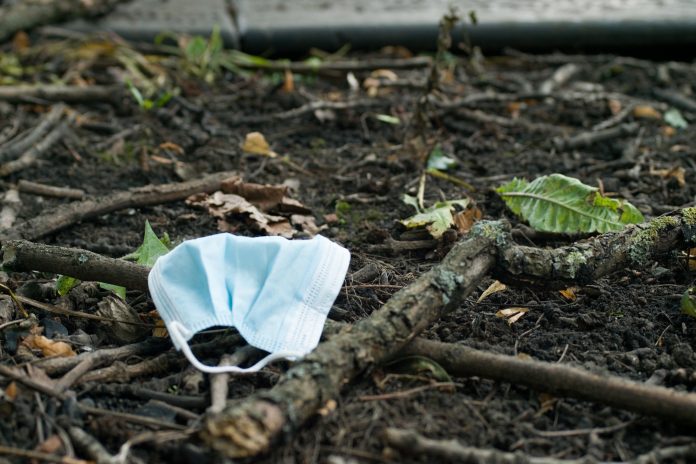Dyl Kurpil, Managing Director, District Enforcement, explains why outsourcing environmental crime enforcement can not only release a financial burden on local authorities but also achieve behavioural change that delivers tangible community benefits
The nation fell back in love with its urban green spaces during the Covid pandemic – but, from discarded face masks to the fouling of lockdown puppies, keeping these spaces clean and safe is creating a massive burden for local authorities that simply do not have the funds.
Littering, dog fouling, spitting and public urination are all criminal offences subject to Fixed Penalty Notices (FPN), but inconsistent enforcement across the country over decades has eradicated standards of behaviour and complaints from the public continue to spiral. Yet small behavioural changes have a big impact: consistent, routine enforcement reduces littering. Awareness changes attitudes. Spaces stay cleaner, safer and more enjoyable for the community.
With growing awareness of the value of these green spaces to physical and mental health, how can local authorities break the cycle of littering and achieve an affordable solution to environmental crime enforcement?
Green space is essential
The importance of urban green spaces has long been established. The first city park was created in Preston in 1833, swiftly followed by an array of spaces across towns and cities to improve the unhealthy lives of city dwellers. Over the past five decades acknowledgement of their importance to society, and as a result investment in these spaces, has steadily declined. Until the arrival of a global pandemic, when our parks became the only chance for outside exercise for huge numbers of people.
This uplift in awareness and usage also ties into more recent acceptance of the role of urban green space in improving physical and mental health, contributing to reducing crime and antisocial behaviour, encouraging community cohesion and environmental benefits, including clean air. With growing awareness of the value of rewilding and pollinator-friendly habitats, local authorities are combining with voluntary groups to refocus on these vital resources.
Nevertheless, with UK local authorities facing a £3 billion budget deficit as the nation emerges from the pandemic, there is huge pressure on resources. How can a council prioritise clean green spaces? Yet, without proactive intervention littering, dog fouling and public urination will continue to undermine the safety and enjoyment of citizens.
Changing behaviour
Littering is a criminal offence, although the swathes of litter and dog mess affecting our green spaces suggests that many individuals have no idea that every cigarette butt, piece of chewing gum or apple core they drop is criminal behaviour. People either don’t know or don’t care that if they are caught leaving an entire loaf of bread for the pigeons or the ducks, urinating in public or spitting – both of which pose significant risks to public health – they will be subject to a Fixed Penalty Notice (FPN) of up to £150.
Despite this, as the lack of consistency in issuing FPNs across the UK reveals, this is a difficult service for local authorities to provide both culturally and financially themselves. It is hard to manage and difficult to resource. The resultant ad hoc approach fails to achieve the education and awareness required to achieve behavioural change and, essentially, stop people littering.
The alternative is to outsource environmental compliance, a service that can be cost neutral for councils. Turning to a trusted third party, that is driven by a desire to improve the quality and cleanliness of green spaces, is not just about authorising the outsourcer to issue FPNs in the area. It is about embracing a service that combines compliance with education and awareness to drive behavioural change.
Proactive community resource
Changing attitudes is key. Outsourced litter officers are trained to engage with offenders as customers, explaining why they are receiving an FPN or, in some cases, just a warning. With the right approach from officers, the majority of individuals typically respond with apology, embarrassment or confusion – it is the minority who become defensive, dismissive or, at worse, aggressive. As a result, FPN compliance can be as high as 90%, with few individuals opting to take the case to the Magistrate’s Court where, more often than not, it is the word of a known enforcement officer that is believed.
The underpinning goal is to reduce littering, which is why education and awareness are fundamental tenets of successful enforcement. In addition to local community campaigns and signage, officers also work closely with litter picking volunteers and take part in litter picks. The areas patrolled by officers are also intelligence-led, with the routes created based on feedback and complaints from volunteers and general public about incidents of litter and fouling.
In addition, officers will be proactive. If there is a spike in litter from a local fast food provider, for example, the officer will talk to the manager and suggest ways to improve customer behaviour, such as new signage and more bins. Feedback is also provided to the council, raising problems such as inadequate litter disposal options or the need for more frequent bin emptying.
Environmental determinism
By joining up the entire process and working with the wider community, an outsourced litter enforcement service can not only provide the council with important additional revenue, including a proportion of FPNs issued, which can be reinvested in environmental services, but also drive measurable behavioural change.
Each individual change has a wider effect – the cleaner the space, the more likely people are to find a bin or take their rubbish home. When litter is everywhere, people feel less compunction about their behaviour. With the majority of FPNs issued to first time offenders – with limited numbers of repeat offenders – people’s behaviour changes fast. Each time a council can take a more robust, consistent approach to litter enforcement, overall levels of littering fall – not only in green spaces but everywhere, from the high street onwards.
By creating an environment where accidental or lazy littering is eradicated, the focus can shift towards the serious, repeat offenders – enforcement teams have the time and space to undertake the more complex investigations.
Conclusion
The difficulty for local authorities is making the move and deciding to trust a private sector outsource provider. This is where the attitude of the outsourcer is key. The company needs to be transparent about both processes and cost model. It needs to demonstrate that officers are not incentivised on the number of FPNs they issue, but that the business model stands up based on jointly agreed deliverables. And it needs to be part of the wider process of education, community engagement and taking a proactive approach to achieving behavioural change.
That change is long overdue. For too long the inconsistent strategies adopted by different local authorities have resulted in rising complaints about littering, dog fouling and fly tipping. Even at the beginning of the COVID-19 pandemic while some local authorities started to enforce FPNs for spitting due to the rapid spread of the virus, the approach was not consistent across the country.
Reliance is on dedicated teams of volunteer litter pickers. If the litter problem can be dealt with before it is dropped, our streets and our green spaces will be cleaner, healthier and more enjoyable for everyone. And the burden for cleaning and maintaining these invaluable spaces will also reduce. Behavioural change is key – and that can only be achieved through consistent enforcement of the law.











